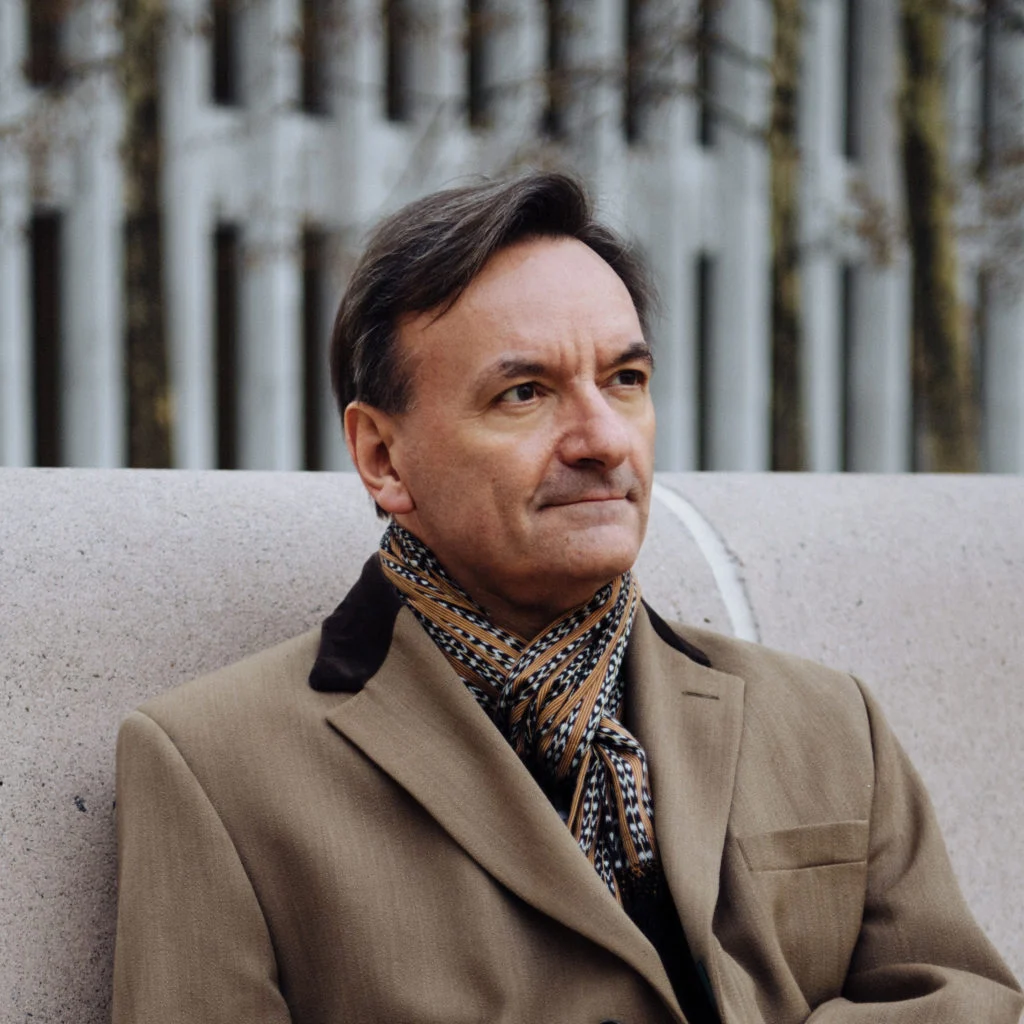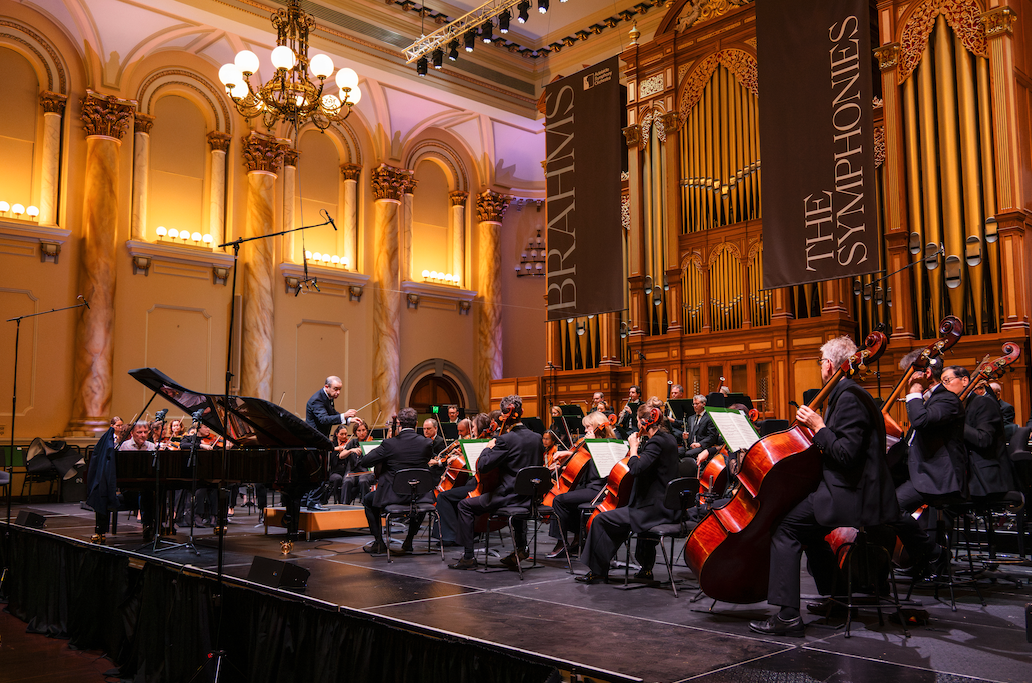Sir Stephen Hough on Brahms, ‘the world of yesterday,’ and the opposite of a disposable culture.
- Behind the Scenes

We spoke to pianist, composer, and writer Sir Stephen Hough on this year’s immersive concert series, Brahms: The Symphonies. Across the program, Hough leads audiences through piano concertos by Beethoven, Mendelssohn, and Grieg, culminating in the Australian premiere of his own ASO Co-Comission, the world of yesterday.
Sir Stephen Hough is generously supported by Diana McLaurin and Joan Lyons.
Brahms: The Symphonies is proudly supported by Normus Homes.

On performing concertos from three very different musical voices – Beethoven’s revolutionary spirit, Mendelssohn’s elegance, and Grieg’s lyricism. How do you approach interpreting such distinct styles within one concert series?
The piano literature is so wide and varied, and I think I’ve got used to playing many different styles over the years. These three composers have such distinctive, individual voices that within seconds you are totally taken inside their personalities. You’re like an actor: a different role will require a different way of thinking, of being … for the length of the performance.
In Concert 4, audiences will experience the Australian premiere of your piano concerto, the world of yesterday – a rare opportunity, as it’s not as often composers perform their own concertos today, but rather harkens back to the likes of Mozart, Debussy, Rachmaninov, and Brahms. What does it mean to you to be the one to premiere this work, and what do you hope audiences will take away from it?
Yes indeed – the piano concerto form came about so that composers had something to play in public that would impress and communicate deeply with an audience. From Mozart up to the mid-20th century this was the norm but has slid out of use since. I’m delighted to be playing my piece in Adelaide, especially with Mark with whom I played it in Bournemouth just a couple of months ago. It’s a piece with a lot of virtuosity, for pianist and orchestra, but also I hope a romantic soul. There are moments when it skirts close to excessive emotion … but I hope in a good way!
The title the world of yesterday evokes a sense of nostalgia and reflection on the past. In your memoir Enough: Scenes from Childhood, you explore themes of memory, identity, and the passage of time. Do these themes manifest in your concerto, and is there a personal story or message you hope to convey through the work?
Well, this work had its origins during the pandemic as a projected film score – I was approached by a movie director from Los Angeles. The movie never got made but I was left with many sketches and out of these I have created the concert piece I will be playing in Adelaide. The title (from Stefan Zweig) just gives a hint perhaps of a world which is nostalgic and romantic, as the movie was intended to be.
Do you have a personal favourite among Brahms’s four symphonies, and if so, why?
Brahms is one of those composers who wrote many masterpieces, including these four symphonies. Perhaps I like the 1st least of all, but between the other three, it’s impossible to choose.
Does performing your own concerto alongside works by Beethoven, Mendelssohn, and Grieg shift your mindset on stage or deepen your connection to the music in a particular way?
It’s strange – when I have finished writing a piece it no longer belongs to me. There is no sense of my improvising or creating anymore. I become the performer, not the composer. So I will be playing my Concerto in exactly the same way as the other pieces – trying to convey the message of the music as clearly and powerfully as I can.
Brahms is often described as both a traditionalist and a visionary. How do you personally view his place in the canon of great composers?
For me, Brahms is unquestionably one of the greatest composers. He has this wonderful combination of heart and head. The music is full of warmth and expression, and yet there is always an intellectual backbone to everything. Architecture is such an essential part of music and Brahms is one of the supreme architects.
What do you hope audiences take away from experiencing this unique combination of beloved classics and contemporary composition across the Brahms symphonies series?
I hope in the moment the audience will be captivated and moved by our performances, and perhaps keep them in their memories after the evening is over. This music that we play spans centuries and so is the absolute opposite of a disposable culture which risks trivialising everything. Perhaps also the audience will be able to recognise the great joy I have in playing in one of my favourite cities once more.
